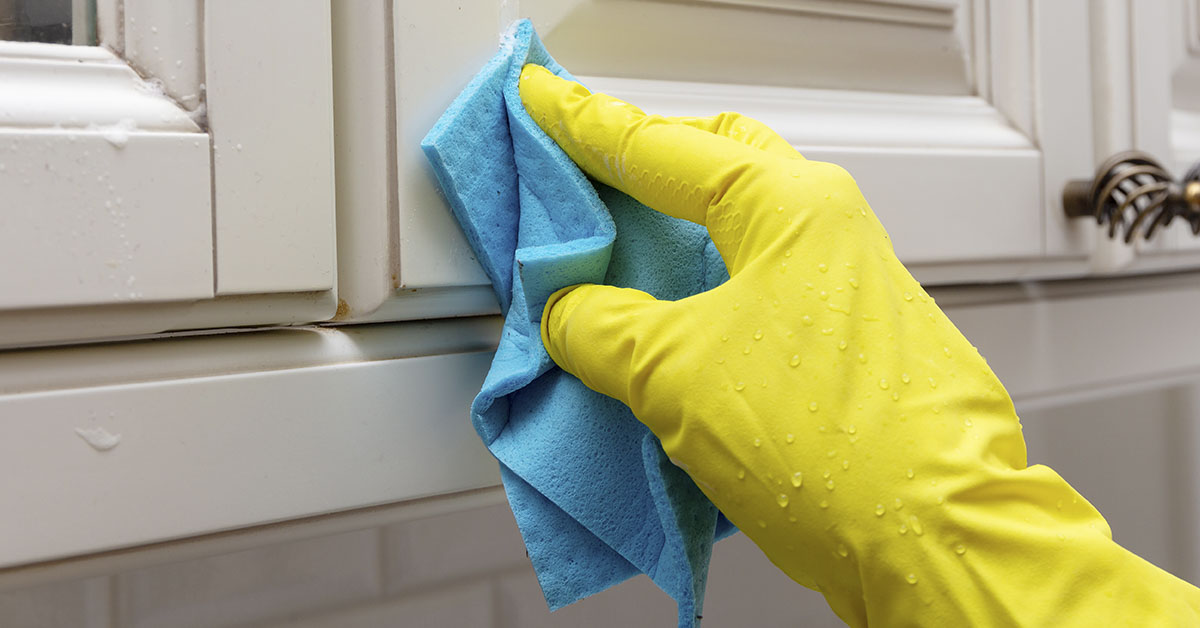Kitchen cabinets and stovetops will inevitably become covered in grease and grime. Meanwhile, things like bathroom mirrors and countertops will become covered in splashes of toothpaste or hair products. All of which leave behind a sticky, greasy, hard-to-clean area. With people shying away from harsh chemical cleaners, more natural and seemingly less potent alternatives have made their way to the market.
Methods for cleaning grease off Kitchen Cabinets
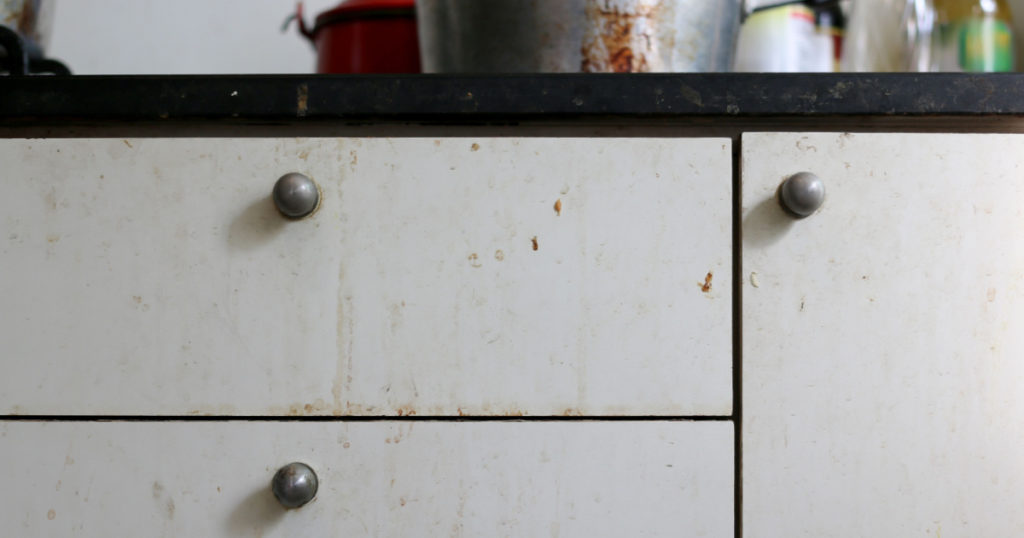
Fortunately, when used correctly, these natural methods can be just as effective. Although they may take a little more time and effort, having a fresh and clean home without overwhelming your family with harsh fumes is well worth it.
1. Try Dish Soap to Clean Kitchen Cabinets
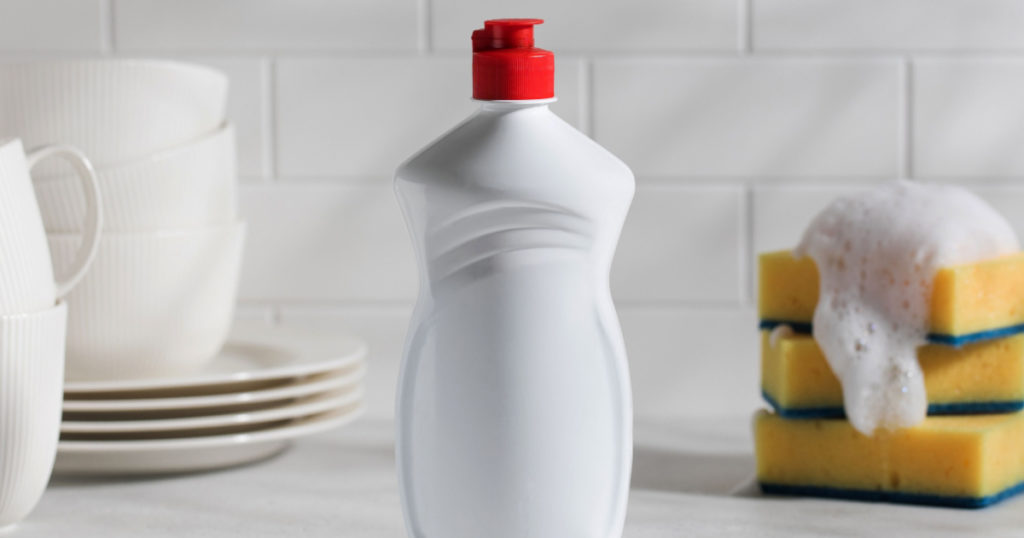
Dish soap’s purpose is to remove grease and grime from dirty dishes. As such, it’s no surprise that it can also be helpful for removing grease from kitchen cabinets. In most cases, dish soap is mild enough not to damage the finish or paint on kitchen cabinets. Simply dab a little dish soap and warm water onto a microfiber cloth, then scrub in circles for a few minutes.
2. Add Vinegar
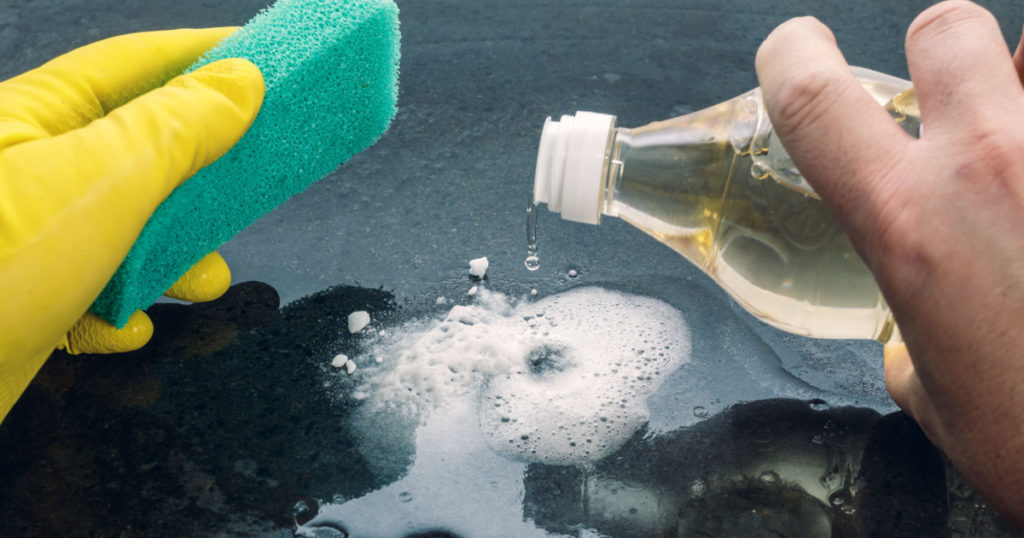
Vinegar is known for being a great cleaning agent. As well as a significantly more natural alternative to almost every cleaning product available. If dish soap and warm water alone didn’t give your kitchen cabinets a satisfying and sparkling clean, try adding a little vinegar to the mix.
Here’s a simple recipe to make at home. Note that a spray bottle is ideal for mixing the recipe together. Fill the bottle with about 16 fluid ounces of water and 8-9 fluid ounces of white vinegar. Then add 2 tablespoons of dish soap. Another benefit of using white vinegar to clean kitchen cabinets is to fight bacteria.
Read: Vinegar Is the Secret to Soft Towels, Whiter Whites, and More Laundry Solutions
3. Curd or Hard soap
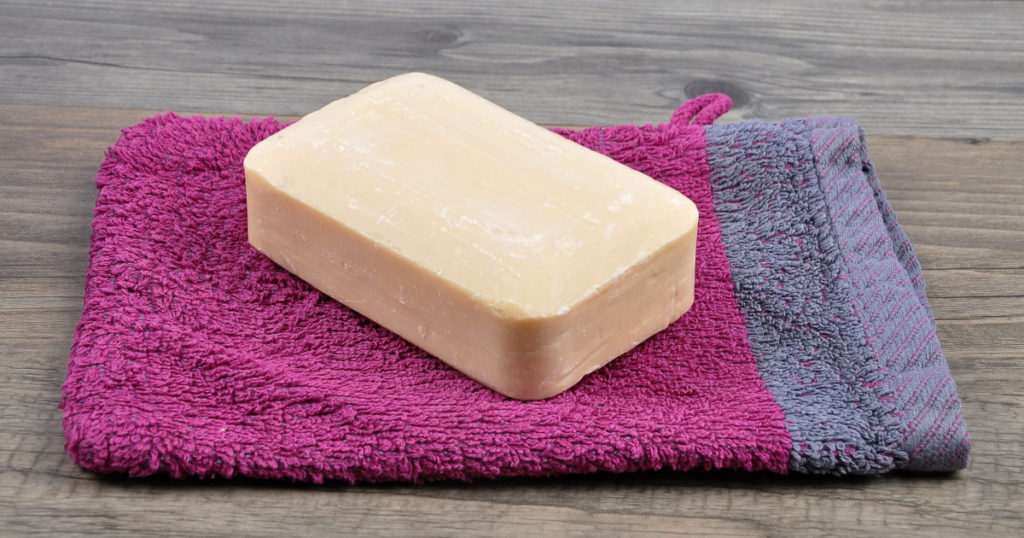
Curd, hard, or soda soap is made of sodium salts of fatty acids. Known for its incredible grease-fighting abilities, hard soap can be a wonderful ally for getting kitchen cabinets made of wood clean and free of grease and grime. It can also be used to clean other wood products found in the kitchen, such as cutting boards, mixing bowls, or spatulas. Simply mix warm water with about a tablespoon of liquid curd soap and stir it together. Grab a sponge or microfiber cloth and scrub for a few minutes, then rinse soap residue away with a damp cloth.
4. Soft Soap Cleans Kitchen Cabinets
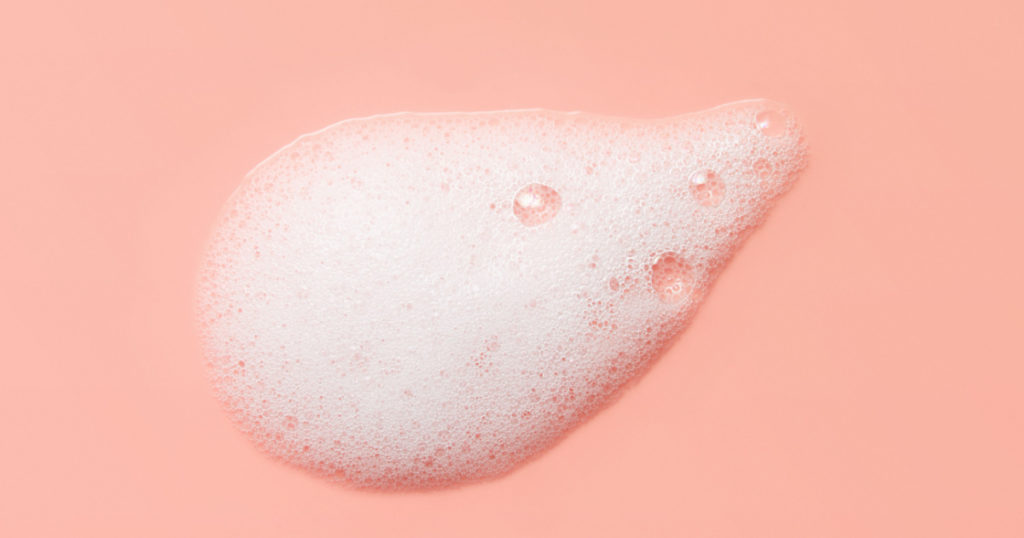
Soft soap also has incredible grease-removing power, so it’s an adequate replacement for curd soap and will likely leave your kitchen cabinets grease-free. Furthermore, this method (using the recipe mentioned above) can be used on most wood furniture, not just kitchen cabinets but also tables, chairs, or side tables and nightstands.
Read: 7 Ways To Keep Ants, Fleas, And Other Pests Out Of Your Home
5. Vinegar Alternative
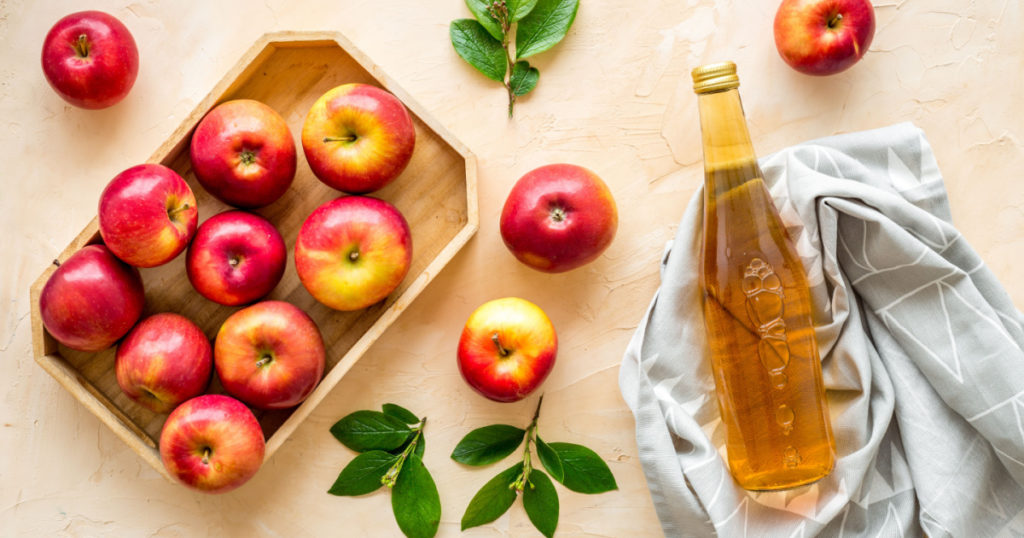
Apple Cider Vinegar has been shown to provide numerous benefits for health and beauty. However, it’s seemingly beneficial in other areas of life as well. Similarly to white vinegar, apple cider has antiseptic properties and acetic acid to help remove grease and grime.
6. Try Castile Soap
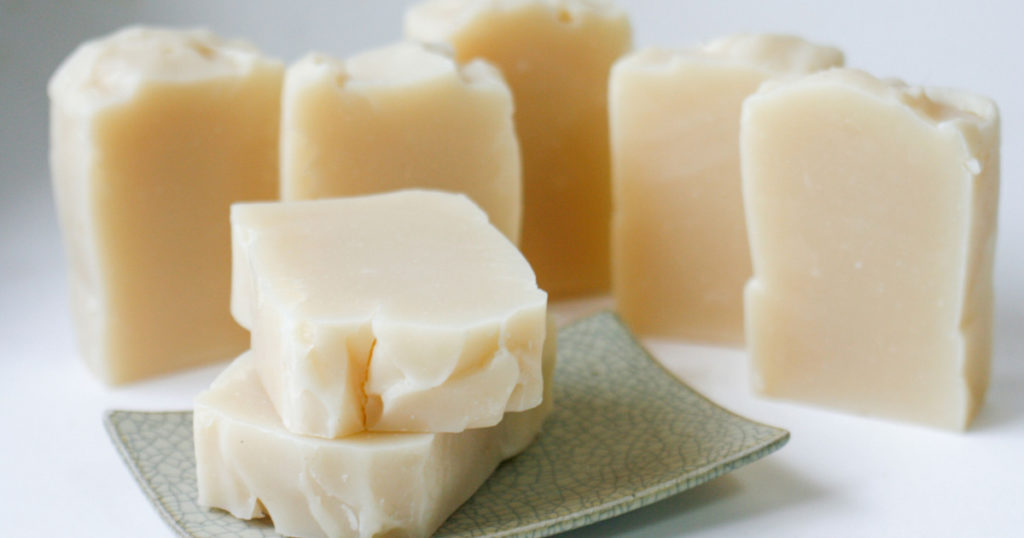
Although Castile Soap is less effective than dish soap, it is another more natural option for cleaning kitchen cabinets. Using a 32-oz spray bottle, create a mixture of 1 cup vinegar, 1 tablespoon of baking soda, and a few drops of Castile soap. Fill the rest with water. This homemade mixture can be used for more than just kitchen cabinets. It will also serve as a more natural alternative that can be used in place of store-bought multi-purpose cleaners.
Read: 10 Tips to Keep Your Bathroom Smelling Fresh
7. Baking Soda for Some Kitchen Cabinets
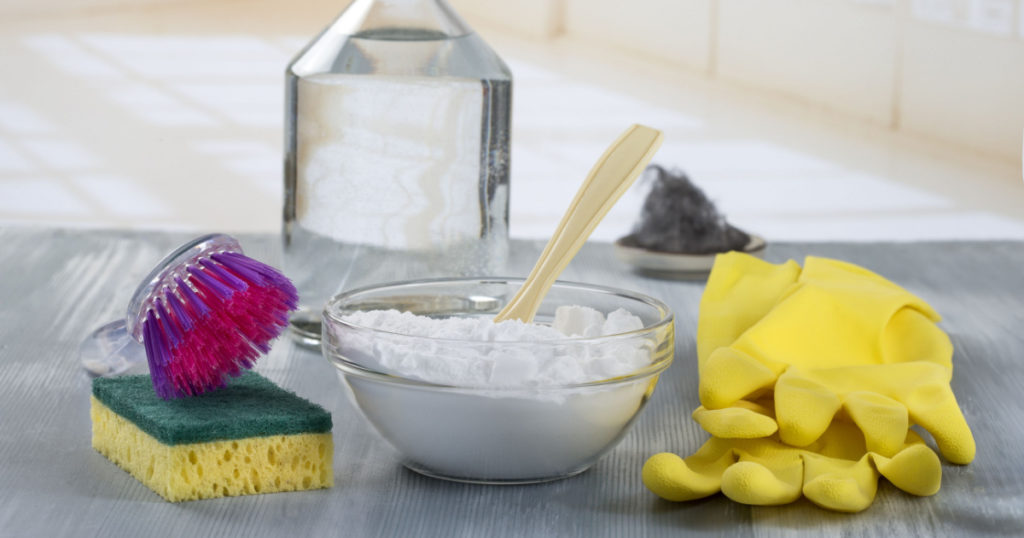
Baking soda can be used as a powerful cleaning and scrubbing agent. Therefore, making a paste by adding water is another natural cleaning alternative that can be used to clean and remove grease from kitchen cabinets in some cases. However, if your kitchen cabinet doors are made of wood or are painted, then baking soda may do some damage. As a result, it’s likely safer to use one of the aforementioned cleaning methods instead.
8. Linseed Oil for Wood Kitchen Cabinets
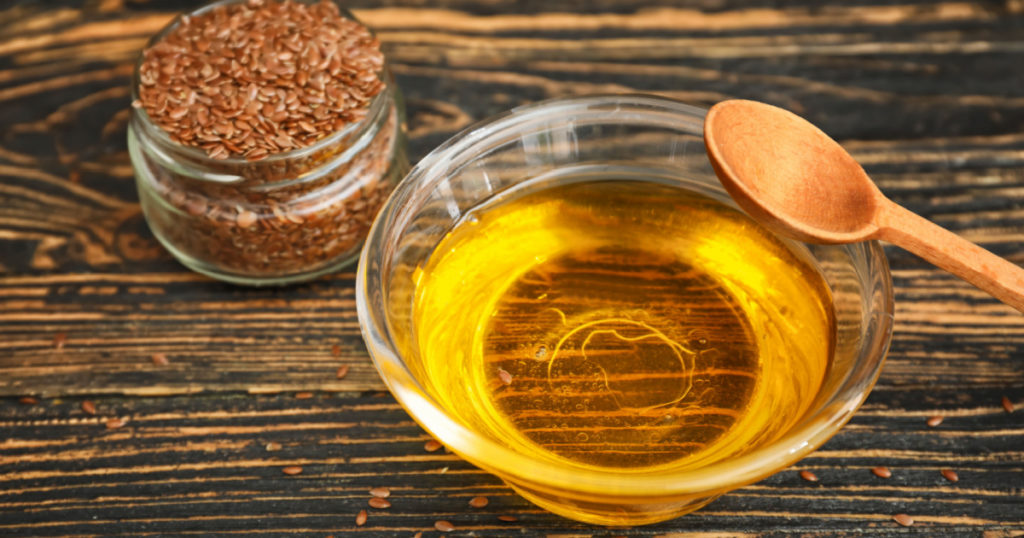
Although it has oil in its name, which might seem counterintuitive, linseed oil is another natural alternative for cleaning and de-greasing kitchen cabinets. Moreover, it’s safe to use on painted and wood kitchen cabinets. Add some linseed oil with some turpentine (a commonly used essential oil) and a little flour. The turpentine oil and flour remove stubborn grease and grime. Meanwhile, the linseed oil protects surfaces and leaves them healthy and shiny. Furthermore, while not necessary, mineral oil can also be used to ensure wood kitchen cabinets stay in good shape and shine.
9. Citrus for Removing Grease from Kitchen Cabinets
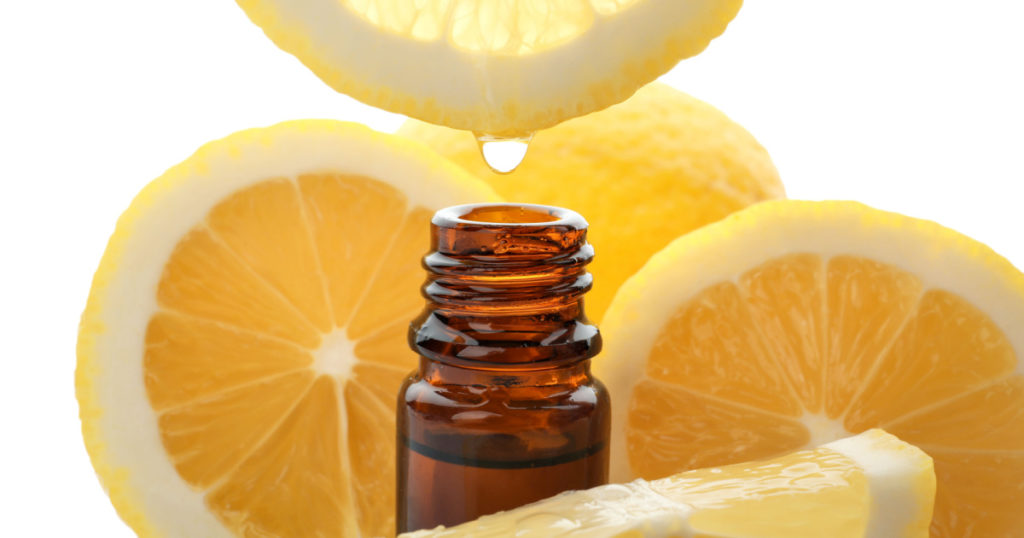
Citrus Oil is often used for cleaning because it works as a de-greaser and, in some cases, as an anti-bacterial solution. Not to mention, it smells great! Grapefruit oil and Lemon Oil have been shown to have antibacterial properties, but for the sake of removing grease and leaving a fresh citrus smell, orange oil can also be used. For a D-I-Y cleaning solution, fill a canning jar with citrus peels of your choice, add some white vinegar, and allow it to “steep” for a few weeks. After that process, simply discard the peels in the garbage disposal to freshen up your kitchen even further, then pour the mixture into a spray bottle for use.
Read: How to Easily Clean Your Entire Oven (Including the Windows)
10. Less Natural
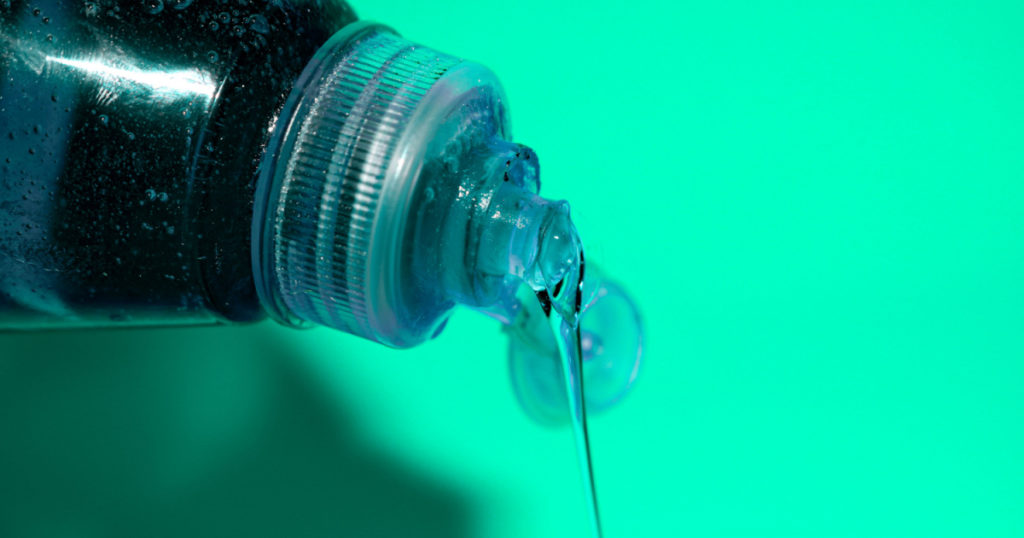
Because natural options are less potent than the highly chemical cleaners from the store, you may have to try them a few times before seeing the desired results; experiment with how long you let each method soak because some may take more time than others. However, if all else fails, there are a few chemical grease removers that will do the trick. Dawn dish soap is a sufficient replacement for natural dish soaps and may even be powerful enough to use independently. Moreover, certain store-bought products like Pledge Everyday Cleaner are ideal for removing grease and leaving behind a sparkly surface.
How Often Should I Clean My Kitchen Cabinets?
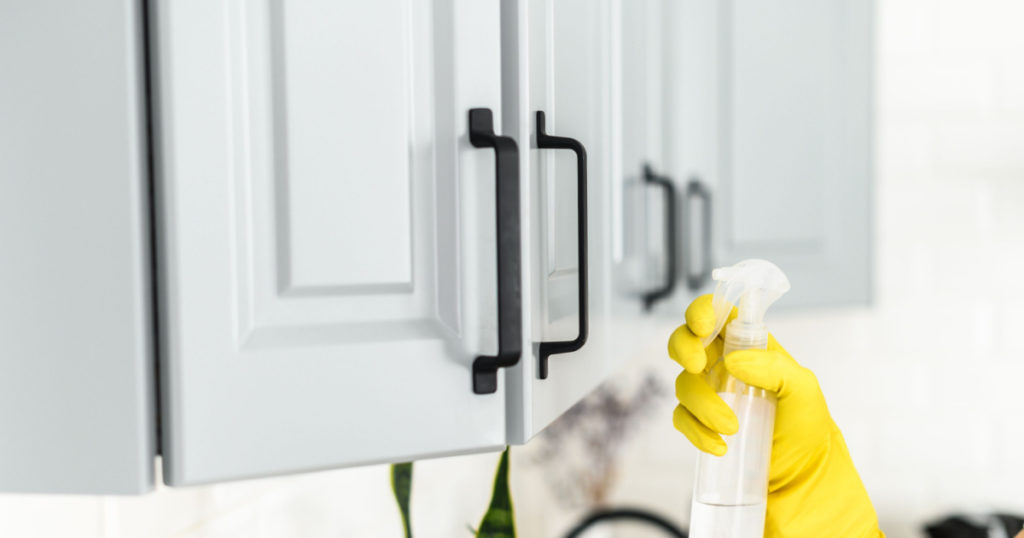
It’s recommended to deep clean cabinets at least once a month and wipe them down with warm water a few times in between to help prevent build-up. Clean kitchen cabinets are more inviting for guests and can easily be achieved with one of these, in some cases more cost-effective, methods.
Keep Reading: People On TikTok Are Cleaning Their Dishwasher Filters And The Results Will Horrify You
Sources
- “4 Tips to Remove Grease from Kitchen Cabinets.” Pintiks
- “Hard Soap Vs. Soft Soap.” Chemistry Stack Exchange
- “How To: Remove Grease From Kitchen Cabinets.” Bob Vila. Kaitlin Hill & Donna Boyle Schwartz and Bob Vila. November 24, 2021.
- “We Tried 5 Methods to Clean Greasy Wood Cabinets — And the Winner Is Ridiculously Effective.” The Kitchn. Meleyna Nomura. April 14, 2023.
- “Antioxidant and antimicrobial activities of citrus essential oils from Argentina and the United States.” Science Direct. Matías Alejandro Raspo, María Belén Vignola, Alfonsina Ester Andreatta and Héctor Rodolfo Juliani.
